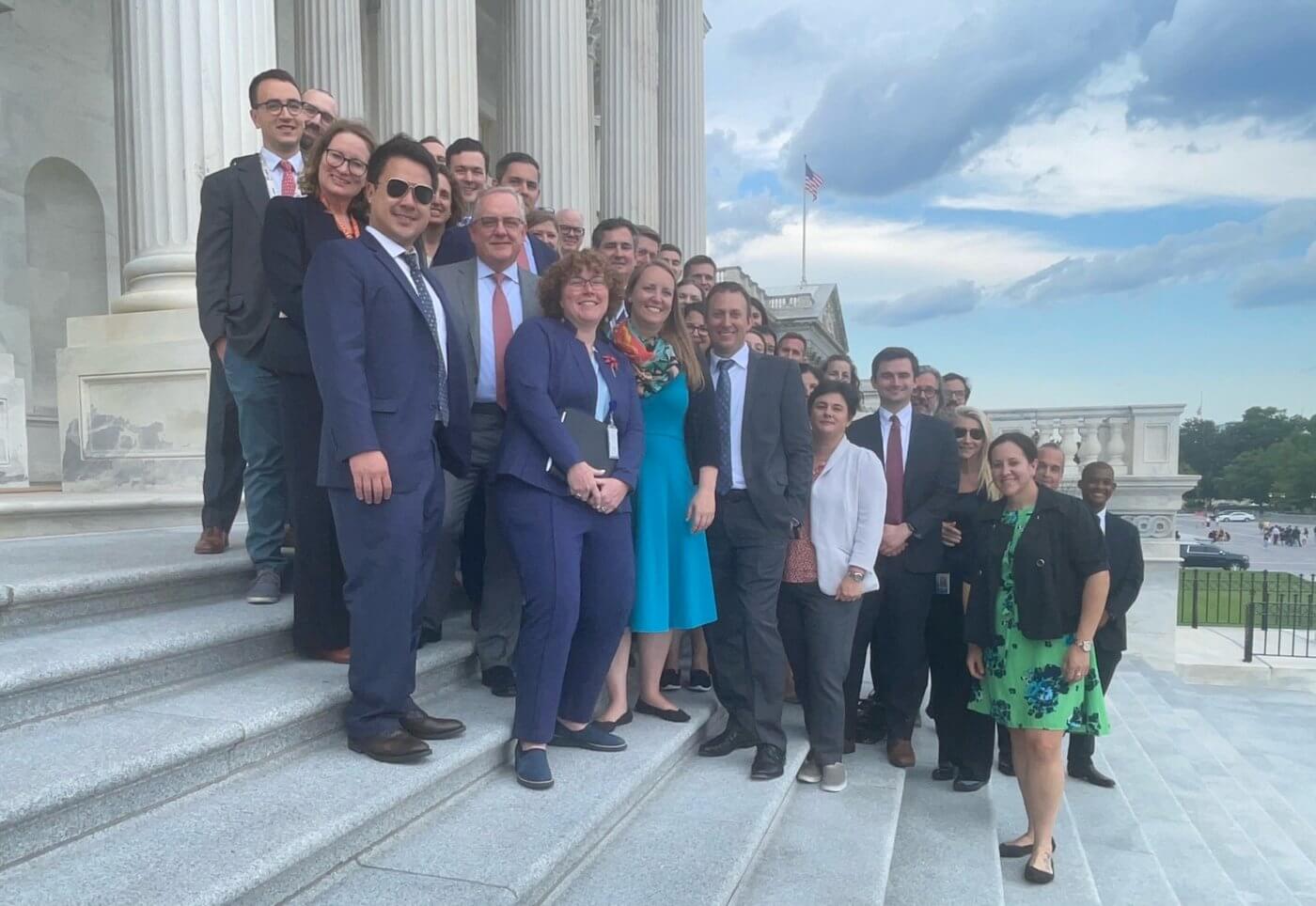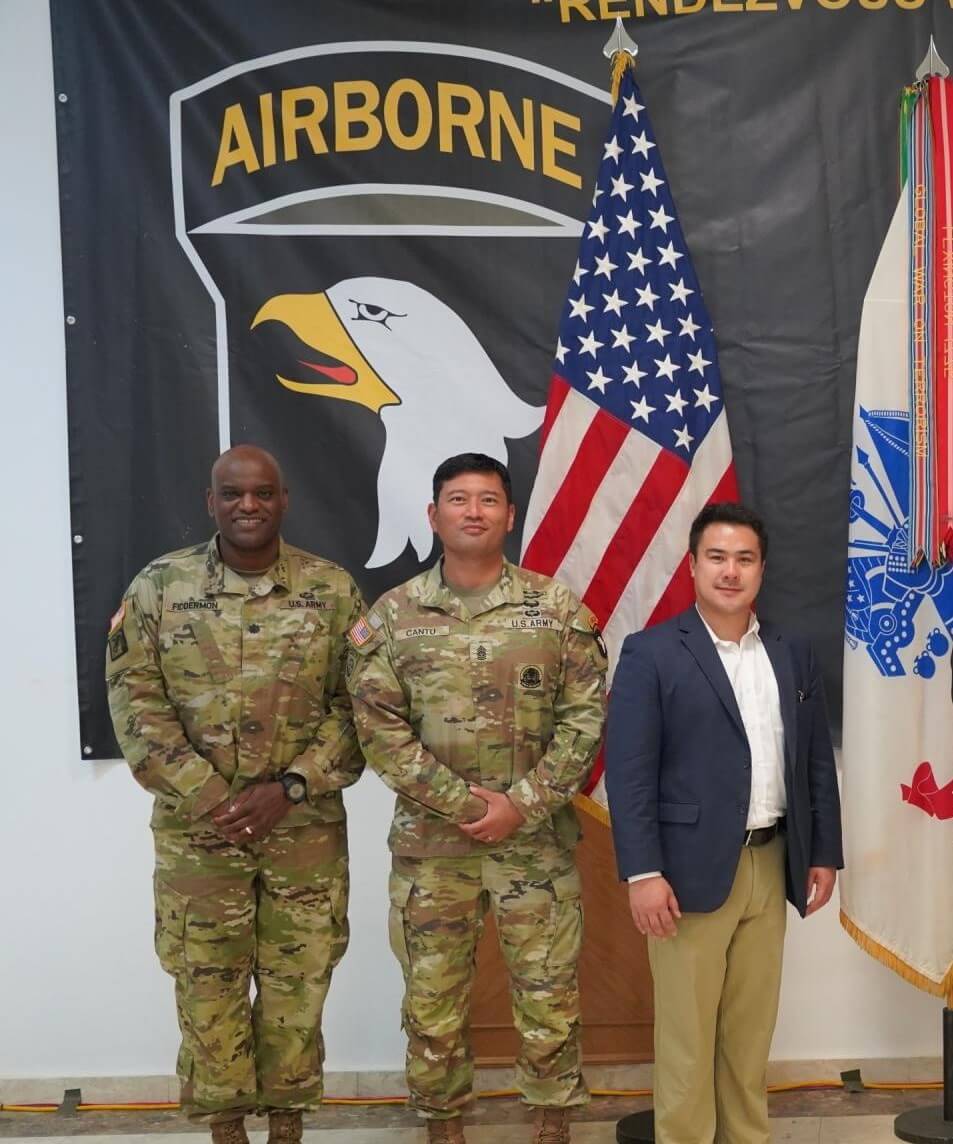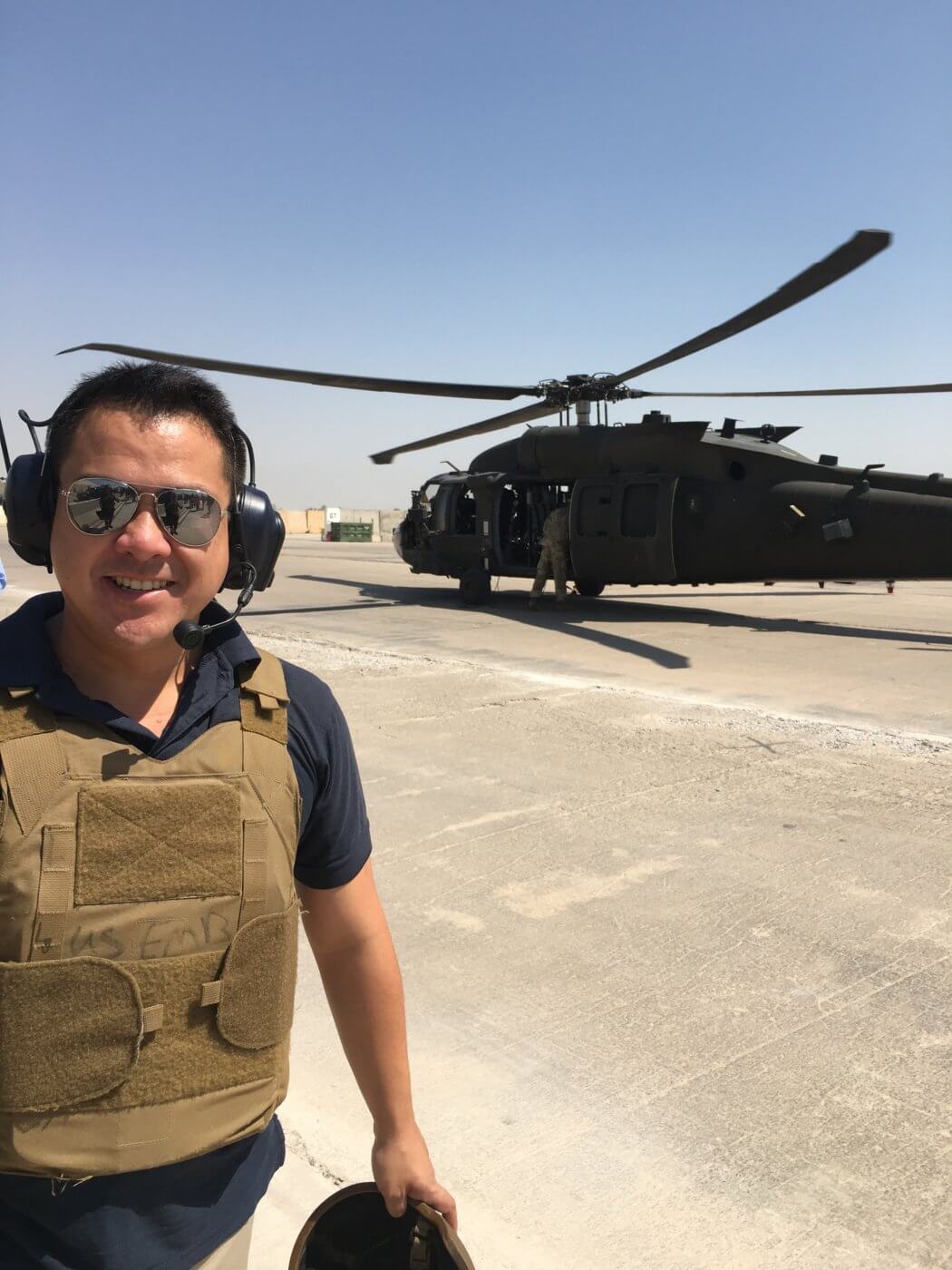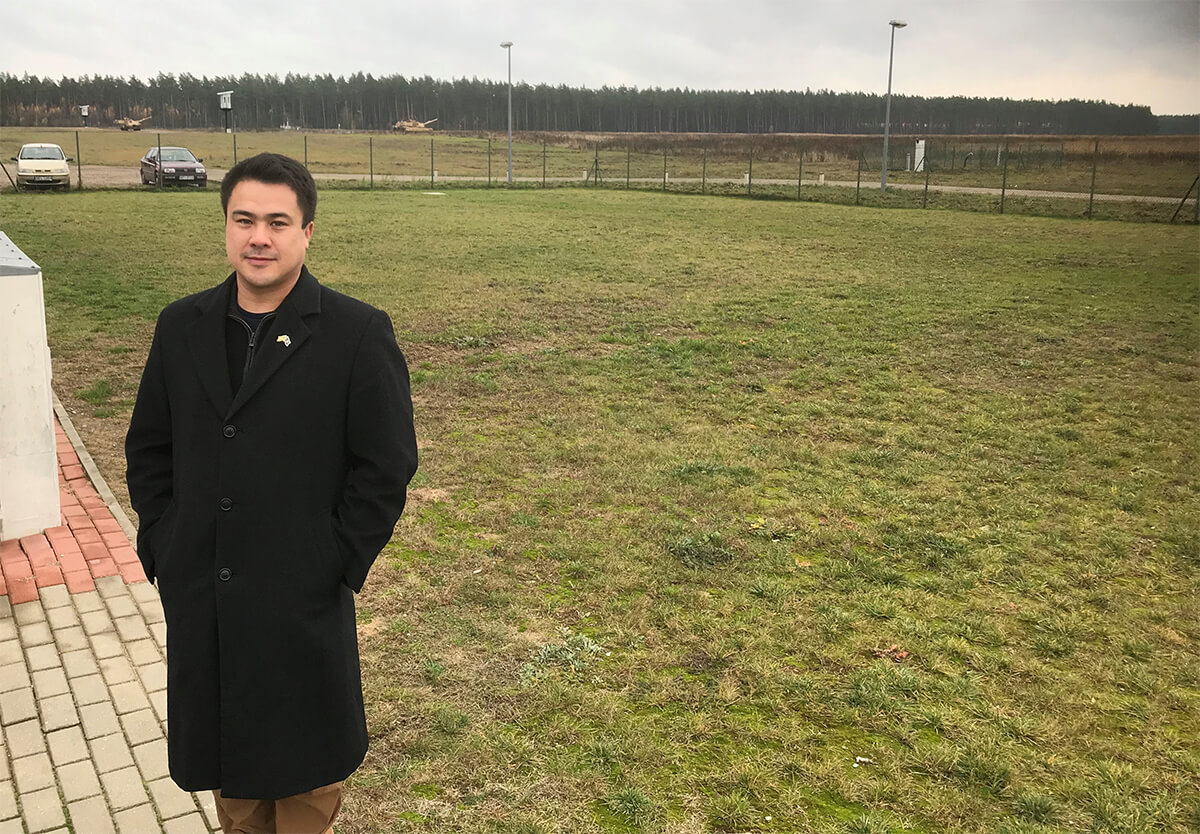More than 20 years ago, Barron YoungSmith ’02 sat in a classroom at Colorado Academy engaged in an Upper School curriculum that he remembers as “challenging,” with “great” English, literature, and history courses.
“I took Russian Literature, and it was fantastic,” YoungSmith recalls. “It was an early look at the cultural background of a country that I deal with every day today.”
In his position as Counsel at the U.S. House Committee on Armed Services, YoungSmith handles military and national security policy issues that intersect with the Department of Defense and the Department of Energy. His portfolio includes the Guantanamo Bay detention camp and Europe, including the issues related to Russia’s invasion of Ukraine.
“It’s been my job to watch European security and developments there, so unfortunately I was not surprised by Russia’s actions,” he says. “But I was certainly dismayed.”
As part of his portfolio, YoungSmith oversees the Ukraine Security Assistance Initiative (USAI), an authority to provide security assistance to Ukrainians. In 2020, Former President Donald Trump was impeached for withholding congressionally approved USAI funds from Ukraine.
After the invasion, USAI went from being a $300 million per year authority to more than $6 billion in response to the emergency.
“It has been meaningful to see how much past training and assistance over the years have put the Ukrainians in a position to successfully resist a full-scale invasion,” YoungSmith says. “Members have been working hard to hold NATO together and to shore up our collective position there to deter further Russian aggression. There has been strong bipartisan support for Ukraine’s efforts to defend itself.”

following the Ukrainian Bill passage in 2022.
One of more than 40 staffers working for the Armed Services Committee, YoungSmith makes it clear that it is his job to facilitate what the elected members of the committee want to do. “We are the professional staff behind the scenes,” he says. “We work for the members in a bipartisan way, and we always need to remember that.”
A college major that leads to a career
From Pre-Kindergarten through Upper School, YoungSmith was educated at CA, making him a “Super-Lifer.” He remembers those 14 years as “a comprehensive world that affects all your development.”
In Upper School, he participated in theater productions and ran cross country, before heading to Brown University for college. There, he discovered that CA had prepared him well.
“In the classroom, CA was not shy about engaging us at a level that was substantial,” he says. “Plenty of our classes were as advanced or more advanced than college classes.”
At Brown, he majored in international relations with a specialization in global security.
“You know how people often say, ‘You are never going to do what your degree was about?’” he says, with a laugh. “My major is literally my job today.”
He made several stops on the journey to his current position. After college, he worked at the Carnegie Endowment for International Peace, helping a scholar write a book on the history of nuclear arms control during the Cold War. He spent five years as a fact-checker, reporter, and editor at The New Republic. But he remained interested in working on national security policy in government and decided to go to law school to make that transition.
In 2011, law school took him to the Midwest to attend the University of Michigan. He interned with the Senate Foreign Relations Committee and with the U.S. Coast Guard JAG office, giving him a great background for his position on Capitol Hill, and as Director of Communications and Legislative Assistant for Congresswoman Jackie Speier (D-CA).
“There is a lot of focus on the executive branch and the judicial branch, but the value of working in Congress is underdiscussed and underappreciated,” YoungSmith says. “You learn an enormous amount, and you are given a lot of responsibility quickly.”
In 2016, YoungSmith moved to the House Armed Services Committee, first in a communications and oversight position, and then to his current position, where he handles policy portfolios for the largest committee in the House.

On a day-to-day basis, he keeps members of the Committee and the House of Representatives informed about national security issues in Europe. He works on the process whereby the Committee passes a defense authorization bill every year, starting with a budget request and moving through complex bipartisan negotiations between the House and Senate as members work together to create national defense policy and support people in uniform. Currently, his work on national security is especially important and interesting because of the war in Ukraine.
“This is the biggest land war in Europe since World War II,” he says. “It is a major national security challenge.”
A career that he considers a ‘privilege’
“It is a huge privilege to work for the U.S. Congress.”
That is a point that YoungSmith makes often. But when asked about their career path, very few youngsters imagine themselves becoming a Congressional staffer.
YoungSmith credits his parents with giving him an early awareness of serious, big-picture issues.

His father was a helicopter pilot for the Army during the Vietnam War. His mother came from a military family and had moved often. She also was a flight attendant while working as an attorney, and with her airline job came free passes for the family to travel.
“Even when I was young, I had a strong awareness of what was going on in the world, and I engaged with those issues,” YoungSmith says. “These were the family interests, the things we talked about, and it came naturally to me.”
YoungSmith says he has no political aspirations. He is happy working behind the scenes, side by side with other staffers, many of whom also come from military families.
“My dad died in a plane crash in 1996 on his way to National Guard/Reserve training,” he says. “Making sure that service members have what they need, that our policies for them are right, and that they are served in a way that allows them to do what they need to do is important. It matters to members. It is a motivator for me, too.”
As a former communications director, YoungSmith is aware that Congress as a whole isn’t always popular, but he says it’s instructive to see the work that elected officials are doing up close.
“The members spend a huge amount of thoughtful time advancing priorities of good public policy—things that are important to them and to their constituents,” he says. “They do valuable work on behalf of national security. It’s important for people to be aware of that.”
He stays in touch with what he calls the “lifelong connections” he made at CA, and he remembers his 14 years as filled with “plenty of positive influences” that have stayed with him. But for now, he has no intention to return to Colorado.
“It turns out I’ve landed exactly where I would have wished to have landed,” he says. “I feel very lucky to be in this position, for as long as that’s possible.”
